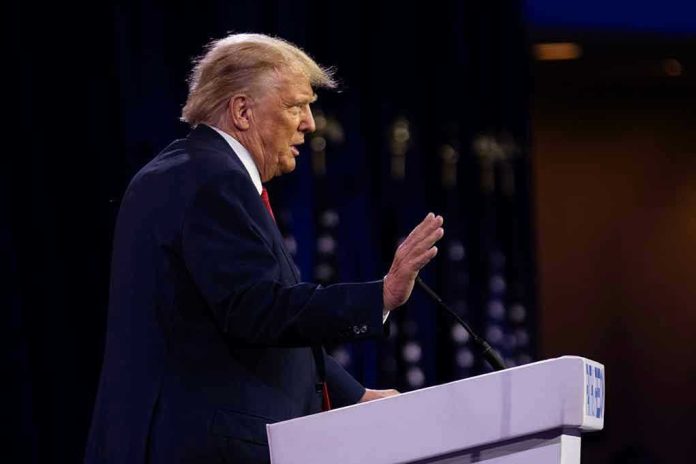
The Trump administration’s decision to slash the U.S. refugee cap while prioritizing Afrikaners has sparked intense debate over the ethics and implications of this move.
Story Overview
- Trump administration reduced refugee admissions to 7,500.
- White South Africans, specifically Afrikaners, prioritized as refugees.
- Policy marked a significant shift from previous U.S. refugee criteria.
- Controversy surrounds claims of Afrikaner discrimination.
Historic Refugee Policy Shift
The Trump administration announced a drastic reduction in the U.S. refugee admissions cap, setting it at a historic low of 7,500 for the fiscal year 2021. The administration’s emphasis on prioritizing white South Africans, particularly Afrikaners, marked a significant departure from previous refugee policies that focused on vulnerability regardless of ethnicity. This pivot raised questions about the motivations behind the policy and its alignment with American values of equality and justice.
The prioritization of Afrikaners, descendants of Dutch settlers in South Africa, was justified by the Trump administration as addressing “unjust discrimination.” However, international human rights organizations have not widely supported these claims. The narrative around Afrikaner victimization has been contentious, with debates in South Africa about land reform and farm attacks fueling divergent views on the severity of their plight.
Timeline and Developments
The policy shift emerged from a broader immigration agenda by the Trump administration, which included travel bans and increased scrutiny of asylum claims. In September 2020, the administration formally announced the new refugee cap. This decision was implemented in the fiscal year 2021, amidst ongoing global refugee crises in regions like Syria and Central America, where needs remain dire.
The decision to prioritize Afrikaners over other refugee groups was met with criticism from refugee advocates and human rights organizations. Critics argued that the policy was not only based on questionable claims of systemic discrimination but also set a concerning precedent for ethnic prioritization in U.S. refugee policy.
Impact and Implications
The reduction of the refugee cap to 7,500 had immediate impacts on refugee resettlement agencies in the U.S., which faced operational and funding challenges due to decreased admissions. The policy also risked eroding the U.S.’s leadership role in global refugee resettlement and potentially strained diplomatic relations with countries like South Africa, where the government has contested claims of systemic discrimination against Afrikaners.
In the long term, the move could undermine the U.S.’s reputation as a welcoming nation for those fleeing persecution and conflict. The politicization of refugee policy may deepen social divisions domestically and affect the country’s standing in international human rights arenas.
Expert and Public Reactions
Refugee advocates and human rights experts widely criticized the Trump administration’s policy as discriminatory and unsupported by substantial evidence of Afrikaner persecution. Legal analysts highlighted the departure from established refugee law principles, which traditionally prioritize individuals based on vulnerability and need rather than ethnicity.
While some conservative commentators defended the policy as addressing overlooked victims, mainstream refugee organizations and international bodies condemned the ethnic prioritization. The divergence in opinions underscores the complex interplay of politics, ethics, and humanitarian considerations in shaping refugee policy.







